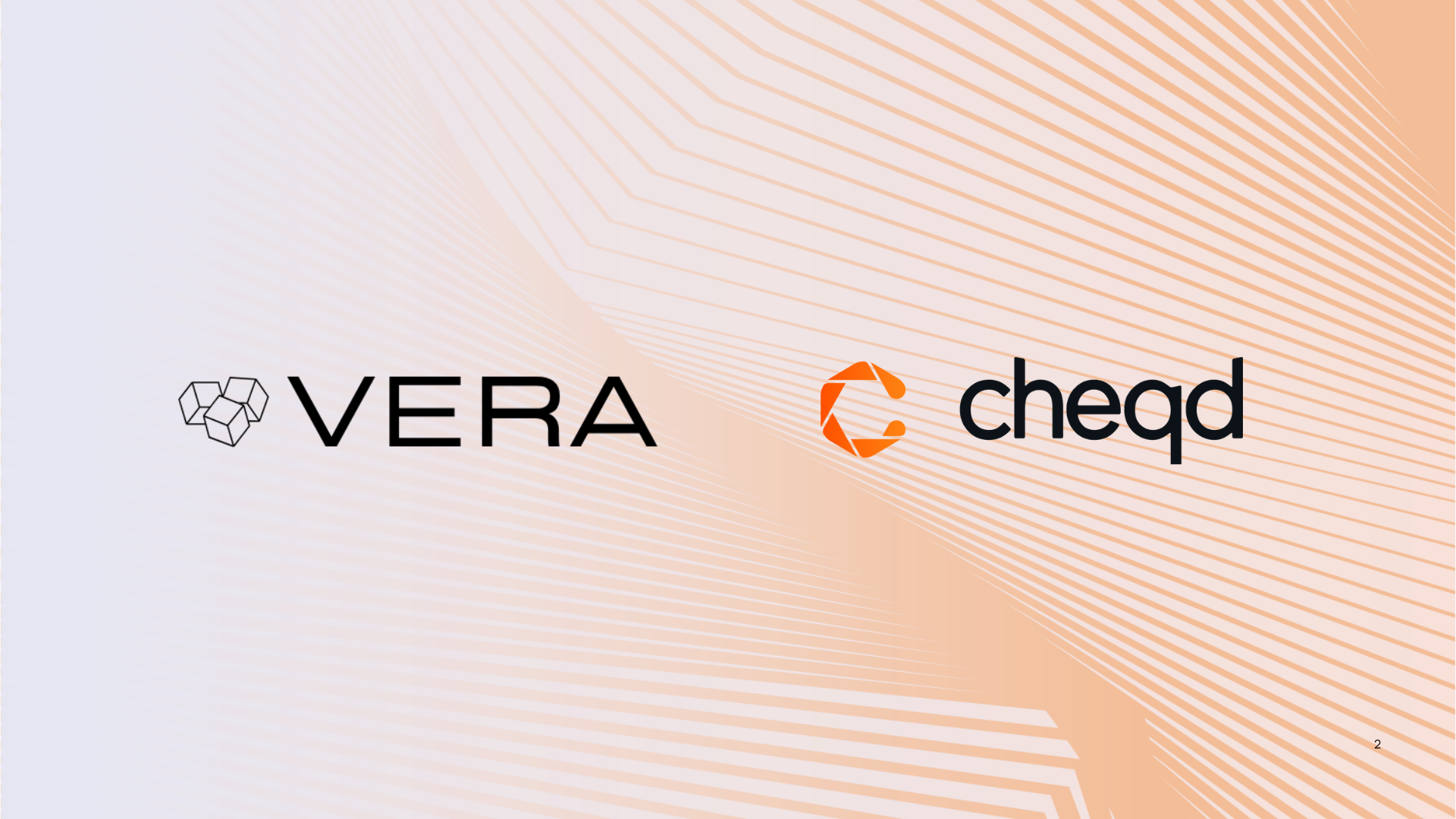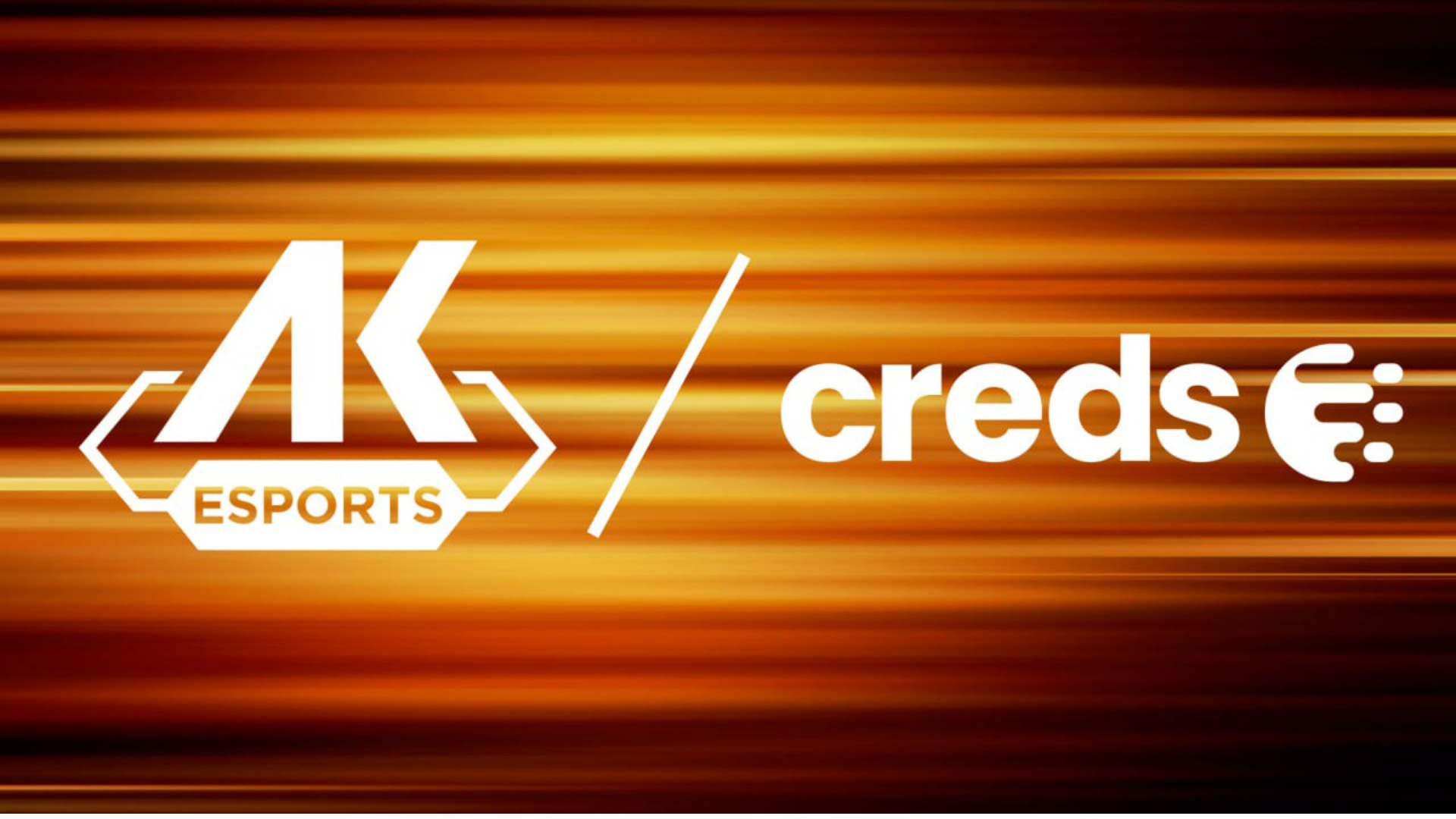Part 2: Bringing cheqd AnonCreds to life with Animo Solutions in Aries Framework JavaScript
Co-authored by Alex Tweeddale (Product Manager at cheqd), Ross Power (Product Manager at cheqd), Timo Glastra (CTO, co-founder at Animo), Berend Sliedrecht (Software Engineer at Animo).
Introduction
In our previous blog we explained how we’re using cheqd’s on-ledger resources module to decouple AnonCreds from Hyperledger Indy and natively support AnonCreds and AnonCreds Objects on cheqd.
This work has laid the foundation for the next piece of the puzzle, bringing cheqd AnonCreds to life with easily accessible and usable Software Development Kits (SDKs).
Over the past few months we have been collaborating with Animo Solutions to support AnonCreds on cheqd within Aries Framework JavaScript. We are thrilled to announce that we have achieved this goal. Via this integration, users will be able to issue, verify and present AnonCreds with cheqd DIDs, and with AnonCreds Objects written as cheqd Resources, identifiable via DID URLs.
Showcasing AnonCreds on cheqd
During the demo we co-hosted with Animo at their office in Utrecht as a pre-event for Rebooting the Web of Trust (RWoT) on the 19th September 2022, we were able to show a full end-to-end journey of Ankur, our CTO, using AnonCreds. You can also watch a demo of this, here.
As you’ll see in the video, using a custom version of Animo’s self-sovereign identity demo we were able to showcase:
- AnonCreds issuance: Ankur gets his Animo identity for his name, date of birth and address as a fully functional AnonCred on cheqd.
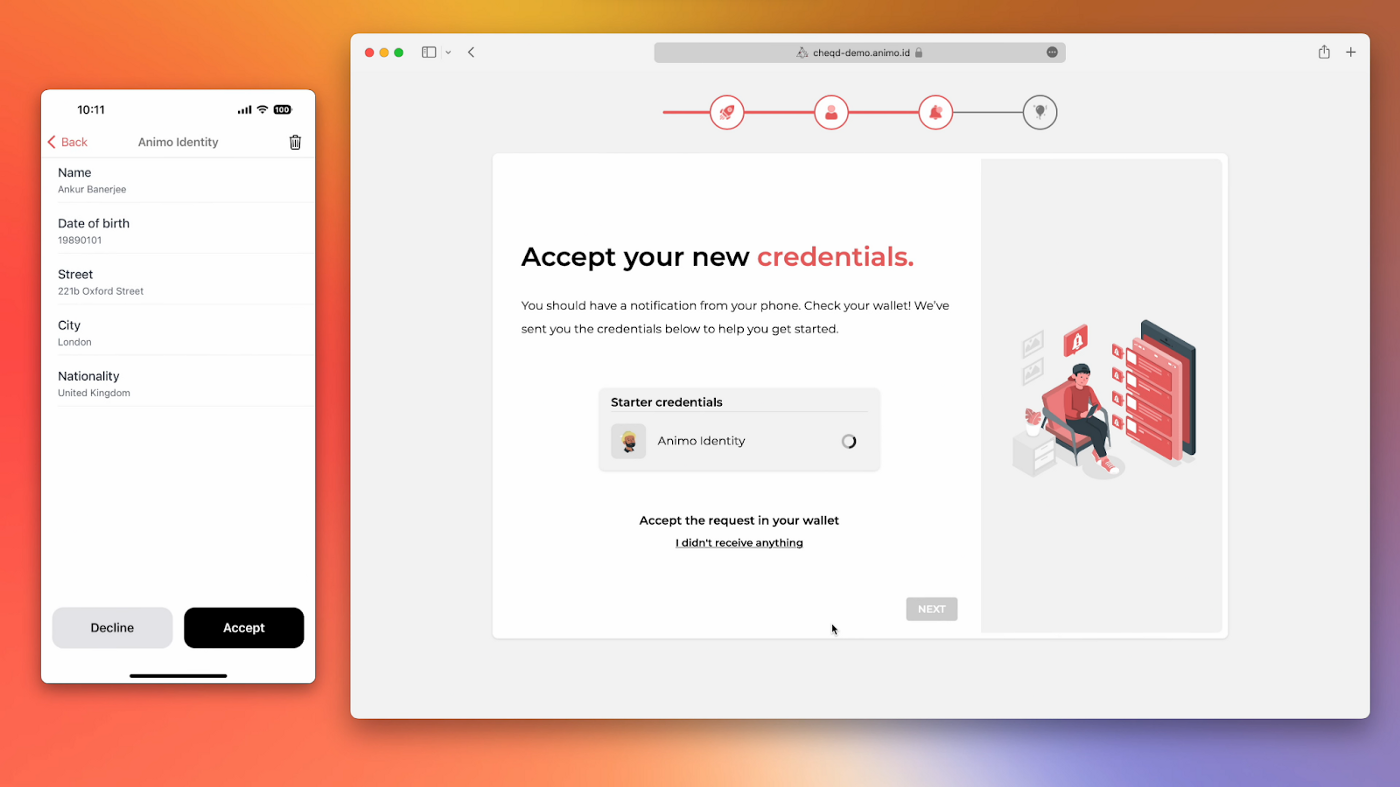
2. AnonCreds presentation and verification: Ankur signs up to attend the RWoT conference using his Animo identity AnonCred which is verified against the cheqd network.
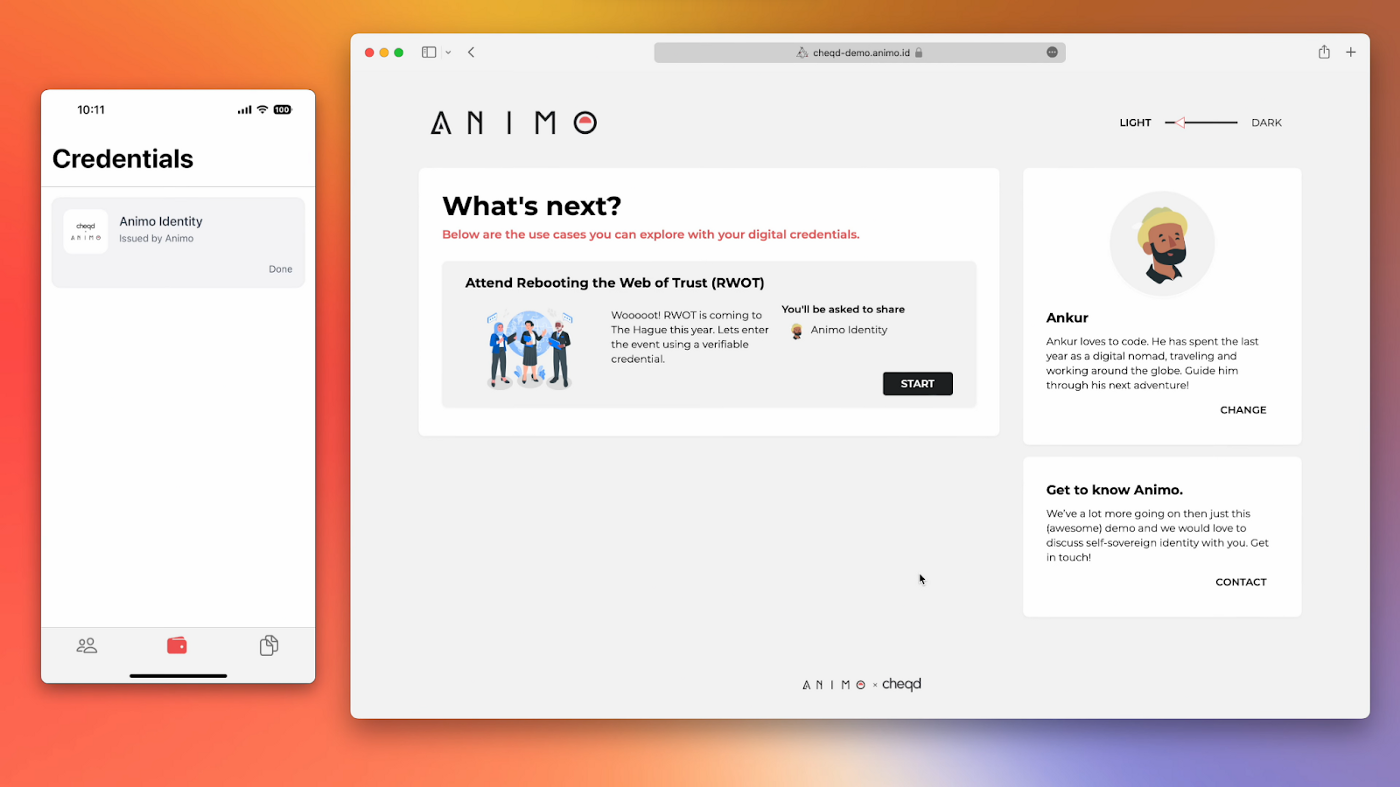
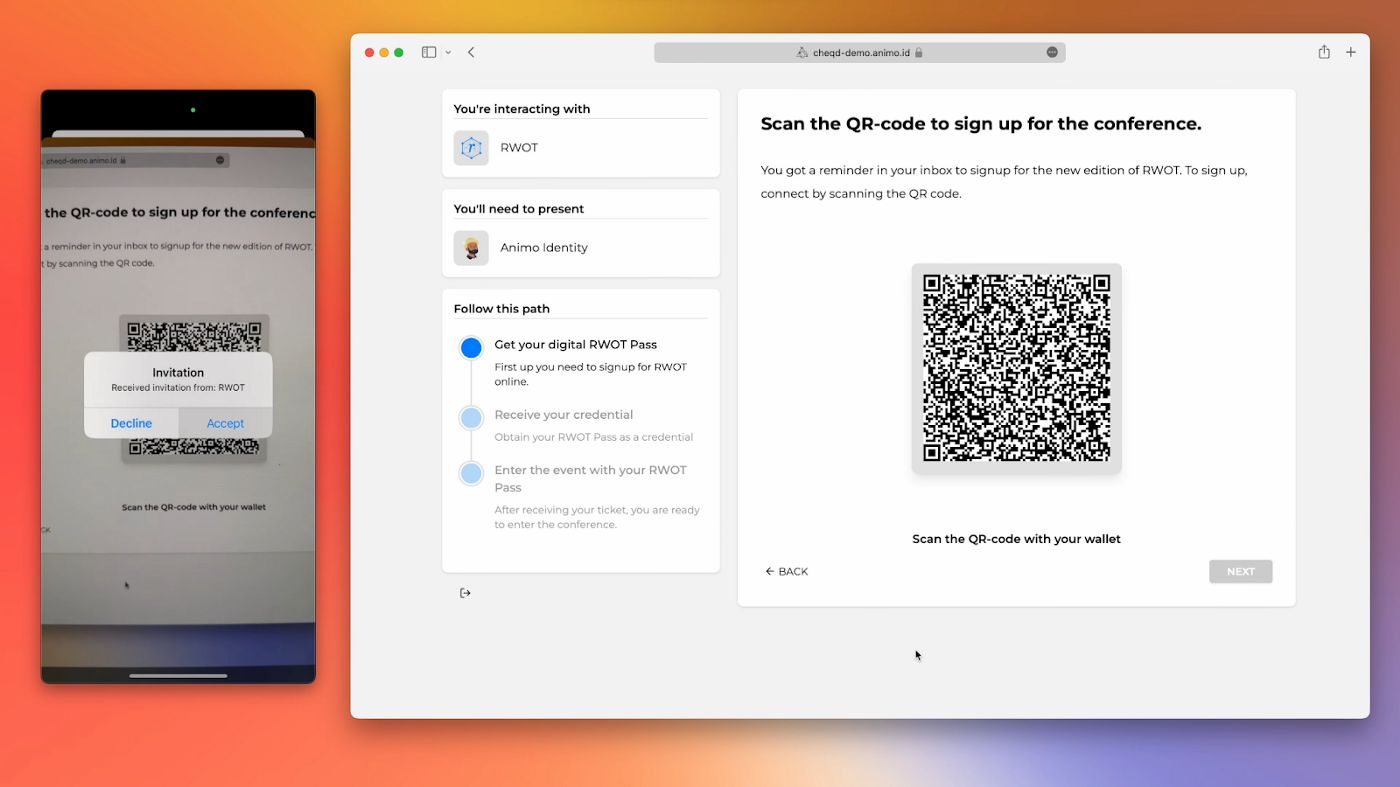
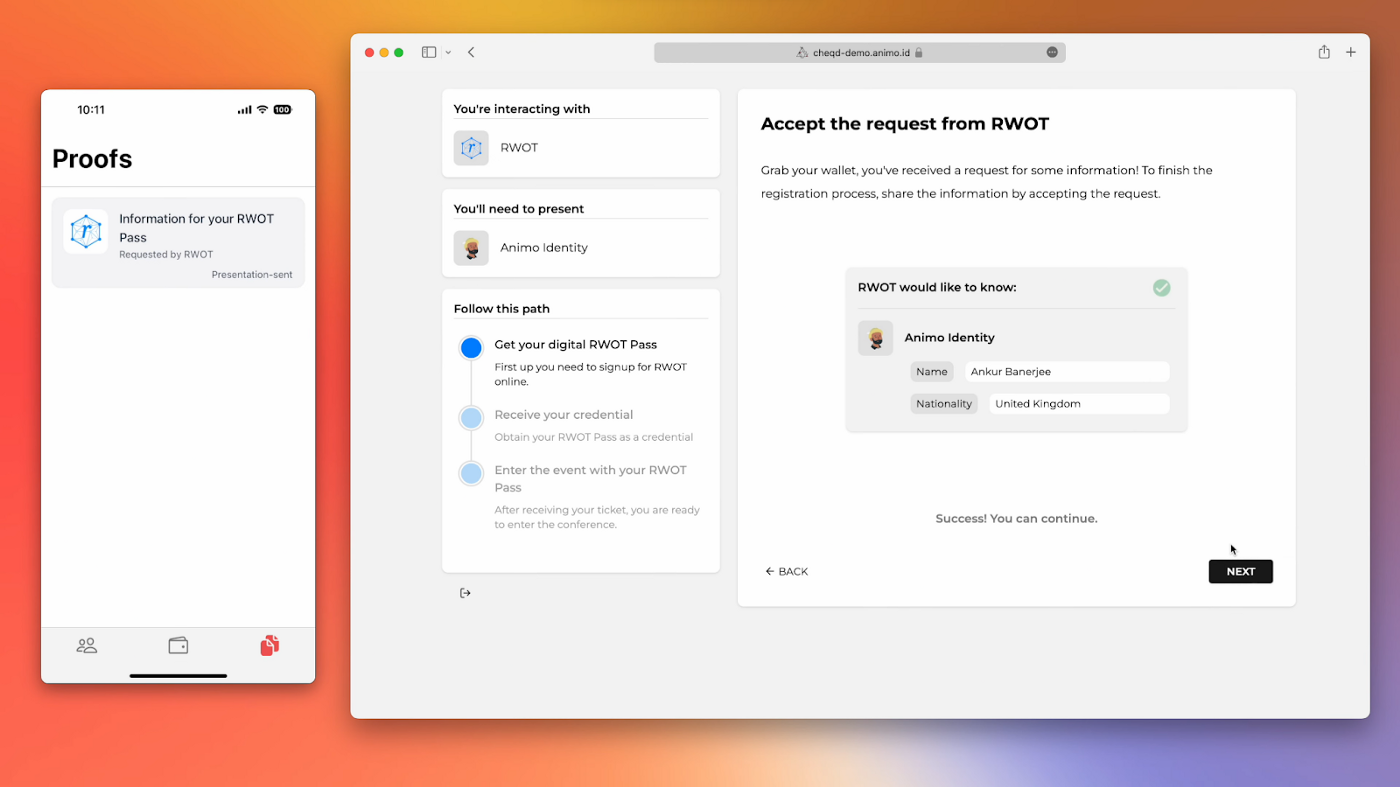
3. AnonCreds issuance: Ankur receives a RWoT AnonCred for his entry to the conference.
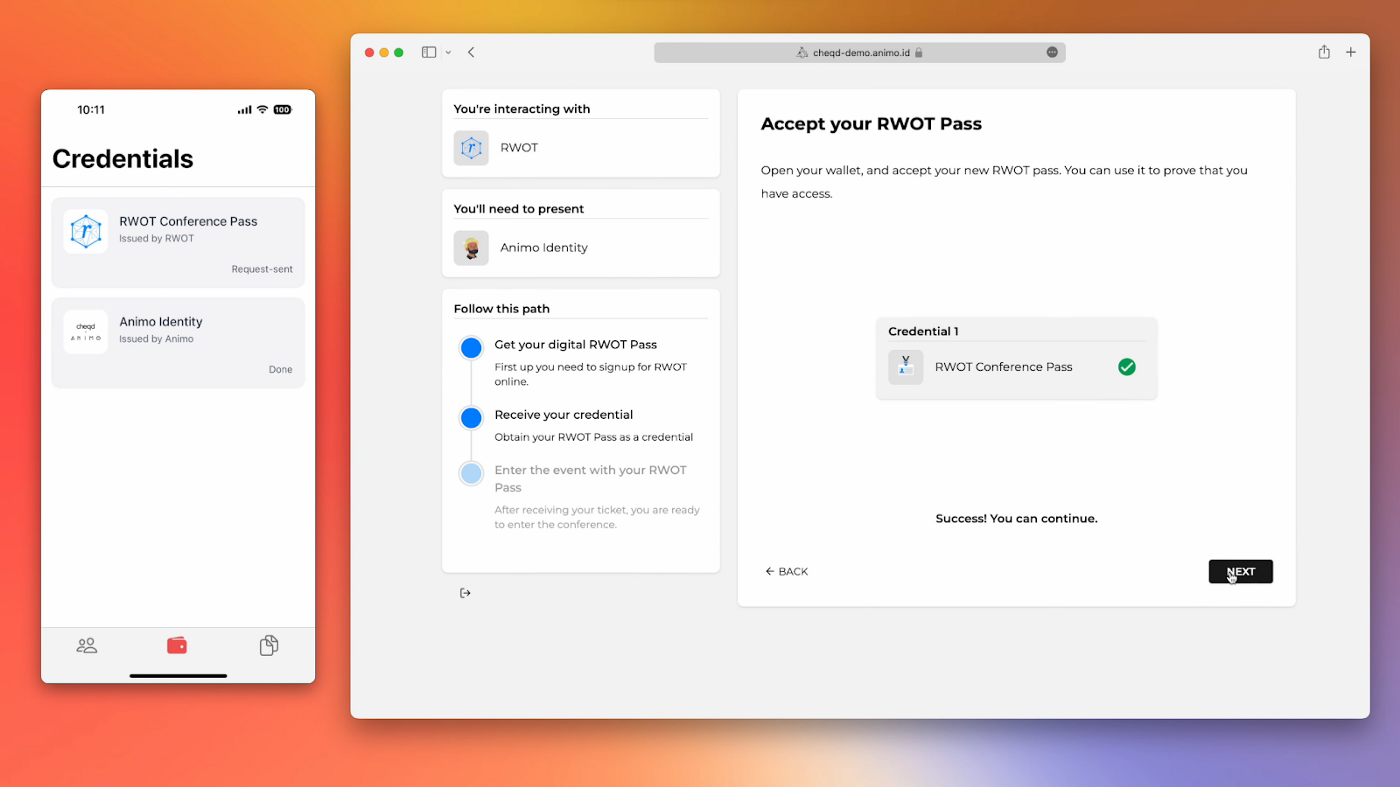
4. AnonCreds presentation and verification: Ankur presents his RWoT AnonCred to gain access to the conference.
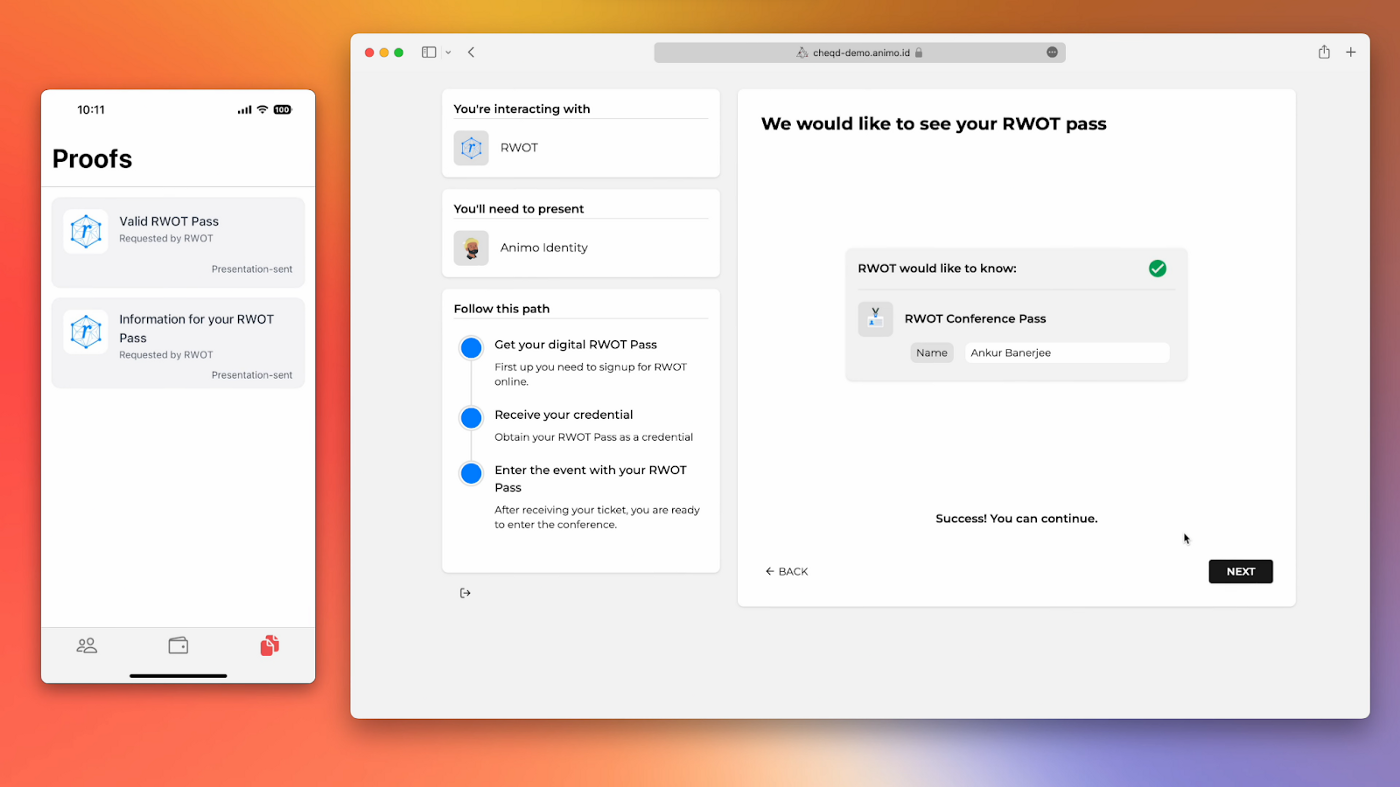
Under the hood, you can check out the schema and credential definitions used for this AnonCred, which are identifiable using a DID URL, and stored as cheqd resources, via our DID Resolver.
Animo Identity schema:
Animo Identity credDef:
RWoT schema:
RWoT Credential Definition:
Integration into Aries Framework JavaScript
Aries Framework JavaScript (AFJ) is a framework that enables users to quickly and easily issue, hold and verify Verifiable Credentials. The main goals of AFJ are:
- Interoperability between all the Aries implementations,
- Usability for non-SSI developers and to remain agnostic of the credential format or DID method that is used and to lead the way in terms of interop.
In the recent months AFJ has heavily been expanding into a more modular and “less specific” framework. The integration with cheqd is a prime example of this, being the first true showcase of anchoring AnonCreds on non-Indy ledgers. Supporting more credential formats, ledgers and DID methods is crucial and essential to the continual development of AFJ.
How Animo leveraged the cheqd SDK to accelerate the integration into AFJ
One of the catalysts for Animo to support AnonCreds on cheqd was the release of cheqd/SDK in August, which was integrated into the Veramo SDK for cheqd. The Veramo SDK for cheqd was built in a modular fashion, which made it a very useful frame of reference for integrating cheqd into AFJ, and making it easier to leveraging the architectural design that the cheqd team put together.
Looking ahead
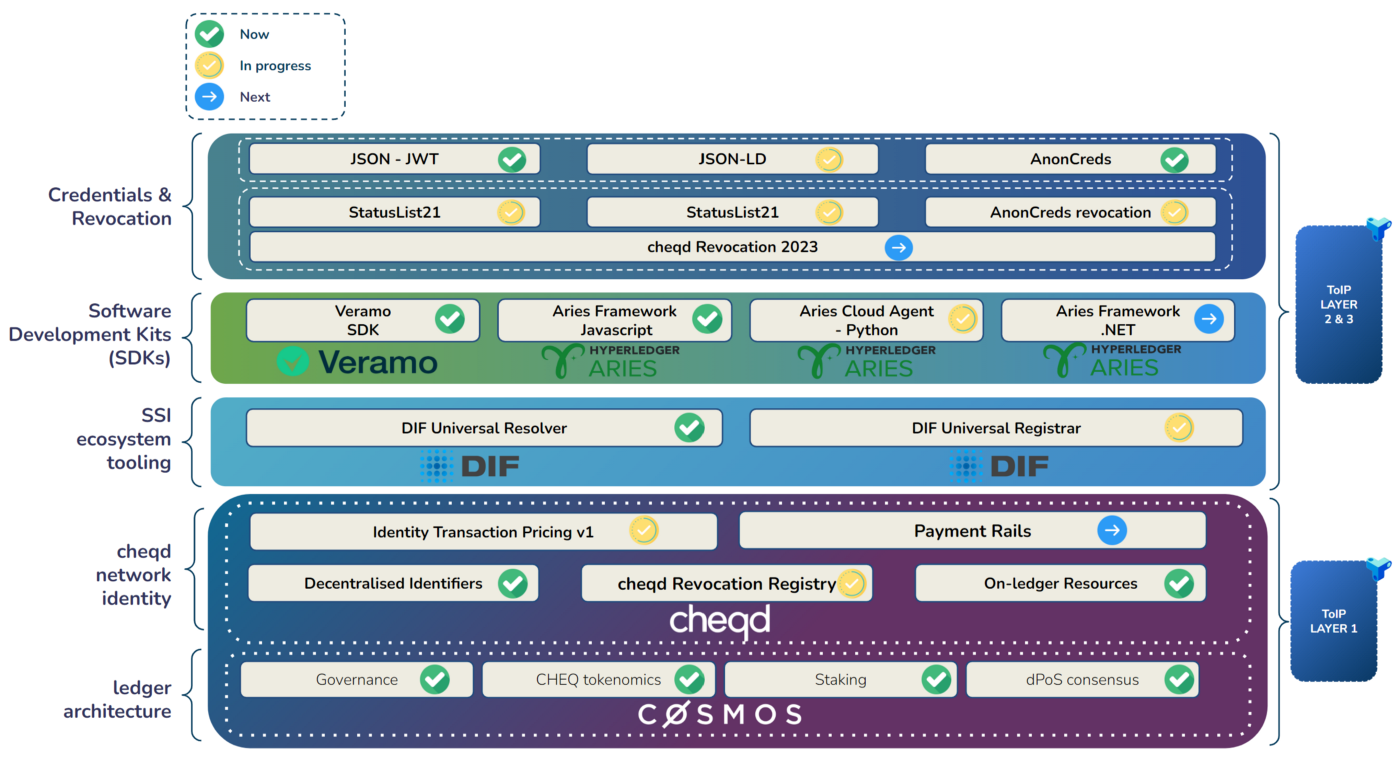
Animo and cheqd continue to collaborate in this effort. The cheqd team are continuing to offer support for widening the SDKs available, for example working on a Universal Registrar Driver which will speed up the ACA-Py development. cheqd are also seeing the community get behind these efforts, with an new initiative to utilise the Community Pool funds to help financially support the progress.




